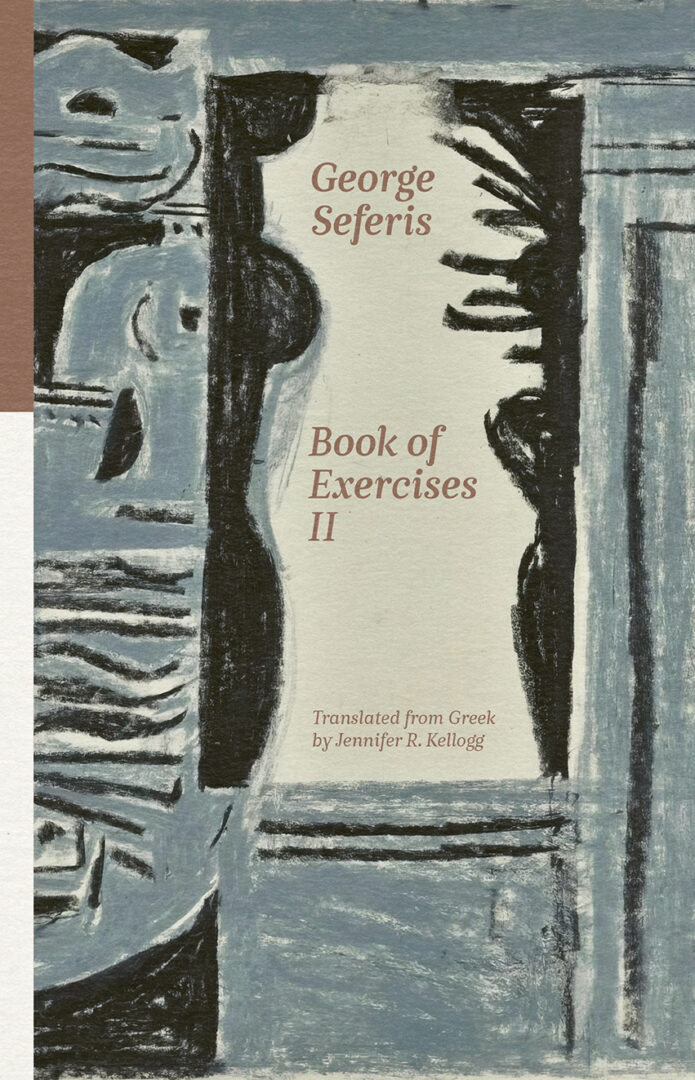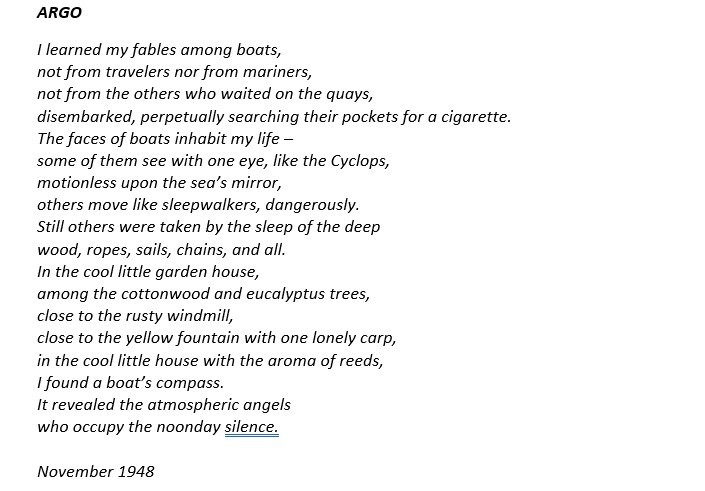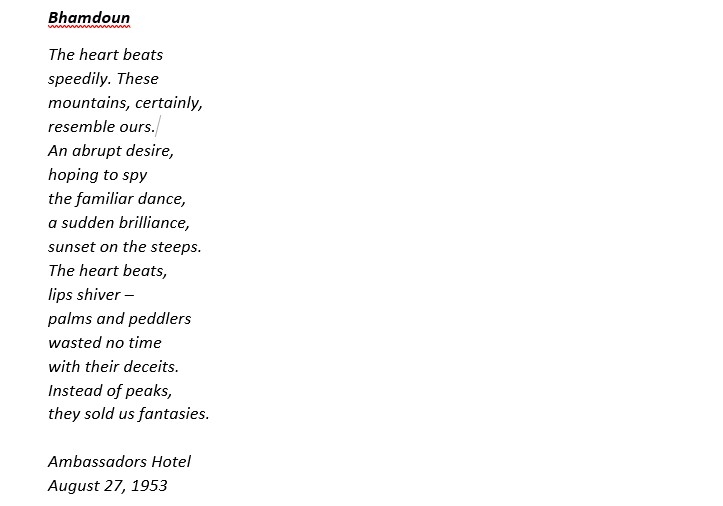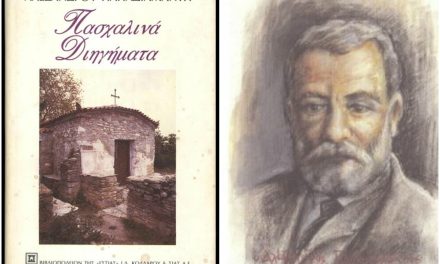Book of Exercises II by George Seferis, recently published by World Poetry Books, is the first English translation of distinguished Greek poet’s lesser-known political, satiric, and erotic poetry as well as previously unseen material from his diaries. In the words of Rachel Hadas, “the starkly prophetic voice of George Seferis is unmistakable in this valuable gathering of poems, many of which are here appearing in English for the first time. Especially in his poems from the 1940’s and 1950’s, Seferis could be speaking to our moment—and in their dark wisdom, the poems seem to know it. Three quarters of a century have only strengthened the power of this vision and this voice”.


Poet, diplomat, and literary critic George Seferis (1900–1971) won the Nobel Prize in Literature in 1963. Spanning the period between 1931 and his death, the poems in Book of Exercises II draw from the vast reservoir of events he witnessed and people he met, and are coextensive with the life of a career diplomat in the Greek Foreign Service. Some of the poems were written at home in Greece, but most were composed on the road, on planes and trains, in hotels and embassies, in countries like Egypt, Crete, and South Africa, as well as England and Albania, where he held more permanent posts. There were long stretches of exile—sometimes self-imposed by the nature of his work, other times thrust upon him by the exigencies of war. Yet poetry was never some idle pastime to fill the margins of a professional life. Pervading all throughout this book is the sense that, like Kafka, the writer in Seferis survived in spite of all that bureaucratic ballast, not because of it.
Masterfully translated by Jennifer R. Kellogg, Book of Exercises II is a multi-genre volume, opening up a hitherto unknown Seferis to English-language readers, thus offering a closer look at his creative process, opinions, and personal life. As Eleni Sikelianos notes, “these are poems written in the off-hours by a poet-diplomat on the move, some from exile in Cairo and South Africa, others under a dictator, and many during ‘a time of wounding,’ WWII and the bloody Greek Civil War. By day the man struggled to manage the messes nations make, while by night the poet let loose. This is the hitherto hidden Seferis in English encounters, now deploying all those sharp tools: humor and irony, with the ribald and the ridiculous on display alongside pensive beauty and joy. In these stellar translations of one of modern Greece’s most vital voices, we are afforded a fuller sense of this bedrock poet’s range”.


Translator Jennifer R. Kellogg, winner of the 2024 Elizabeth Constantinides Memorial Translation Prize from the Modern Greek Studies Association (MGSA) for her translation of the book, comments that “with Book of Exercises II, I have attempted to revive engagement with a poet known for being dour, doctrinaire, and ‘difficult’. The era when Seferis’s translators decided to overlook his erotica and satire is long past. In the ongoing epoch of death and destruction unleashed by the World Wars, sensuality, sarcasm and lament are enduring rebukes to dehumanizing massacres and reactionary national fantasies. Though Seferis dedicated his life to advancing Greek national interests through his writings, he also expressed his doubts, dilemmas, and alternative readings of Greek culture, history, and contemporary events […] May [the book] stand against the erasure of time. May it remind us that questions of migration, identity, and belonging are perennial and universal, and that self-expression, especially humor, is an adaptive way to cope with trauma, violence, and grief”.
As mentioned in the Committee’s citation for the Elizabeth Constantindes Memorial Translation Prize, “‘Seferis unplugged and uncut in English!’ … by turns savagely ironic, quietly playful, or inward-looking and pensive, but always offering incisive commentary on his time and place. After so many decades of translations and retranslations, many of us in the committee were taken aback by how this book really does draw out fresh nuance from Seferis, and it achieves this not only through the idea-worlds of the poems themselves but through Kellogg’s deft, daring, and often acrobatic translations. … Kellogg’s book will doubtlessly help a broad and diverse readership to open new, inviting windows not only onto Seferis himself but onto Greek literature more generally”.
A.R.
TAGS: LITERATURE & BOOKS | READING GREECE














